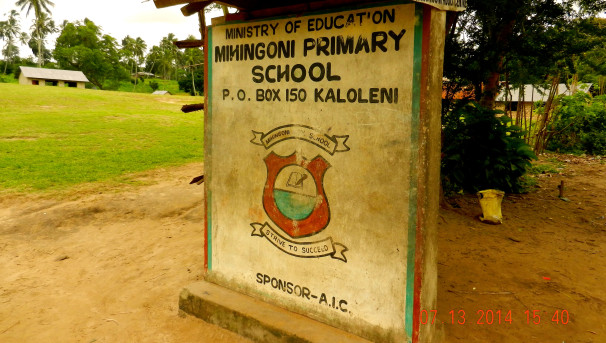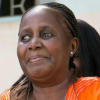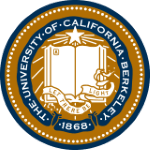Maji Yaje Kwanza
THANK YOU to each of our generous donors from across nine states, giving gifts from $10 to $100 to *$750 *to **$6,000** as of today - absolutely speechless. We've created a new stretch goal of $16,000 for the remainder of the campaign - as mentioned in the project description/video, $16,000-18,000 will be needed to bring complete resolution to the remaining infrastructure work. With this new incredible boost we are within arm's reach of that goal. Please continue to show support by giving and/or sharing between now and 11:59pm PST on 2/23!
Overview:
Maji Yaje Kwanza, meaning ‘water is the first of many things’ in Swahili, is a project focused on bringing water infrastructure to Kaloleni (an agricultural constituency within the coastal province of Kenya), with sub-county primary schools being the catalyst.
-
The project evolved from Ashley Miller completing a UC Berkeley study abroad program and research project at Kenyatta University in 2013, becoming close with Kenyatta student Louisa Mwenda and her immediate/extended family. After the exchange program ended they took Ashley down from Nairobi to their family home in Kaloleni to visit Louisa’s grandmother; while discussing the severe water issues in the area, and how one of the family members was a teacher at a local primary school, the idea for the project originated.
-
This crowdfunding campaign aims to bring resolution to the 2014 pilot project implementation and establish a borehole (a kind of underground well) to connect with all of the already-enacted school and community infrastructure, in order to ensure consistent water service provision (details below).
-
This will be the first formal water source for the school and the area, and is expected to serve roughly 3,000 people - 800 students and staff at the school site and (based on estimates from the Chief’s office), an additional 2,000 people in the Mihingoni community.
Please help us bring water to these children and families in need by making a gift today!
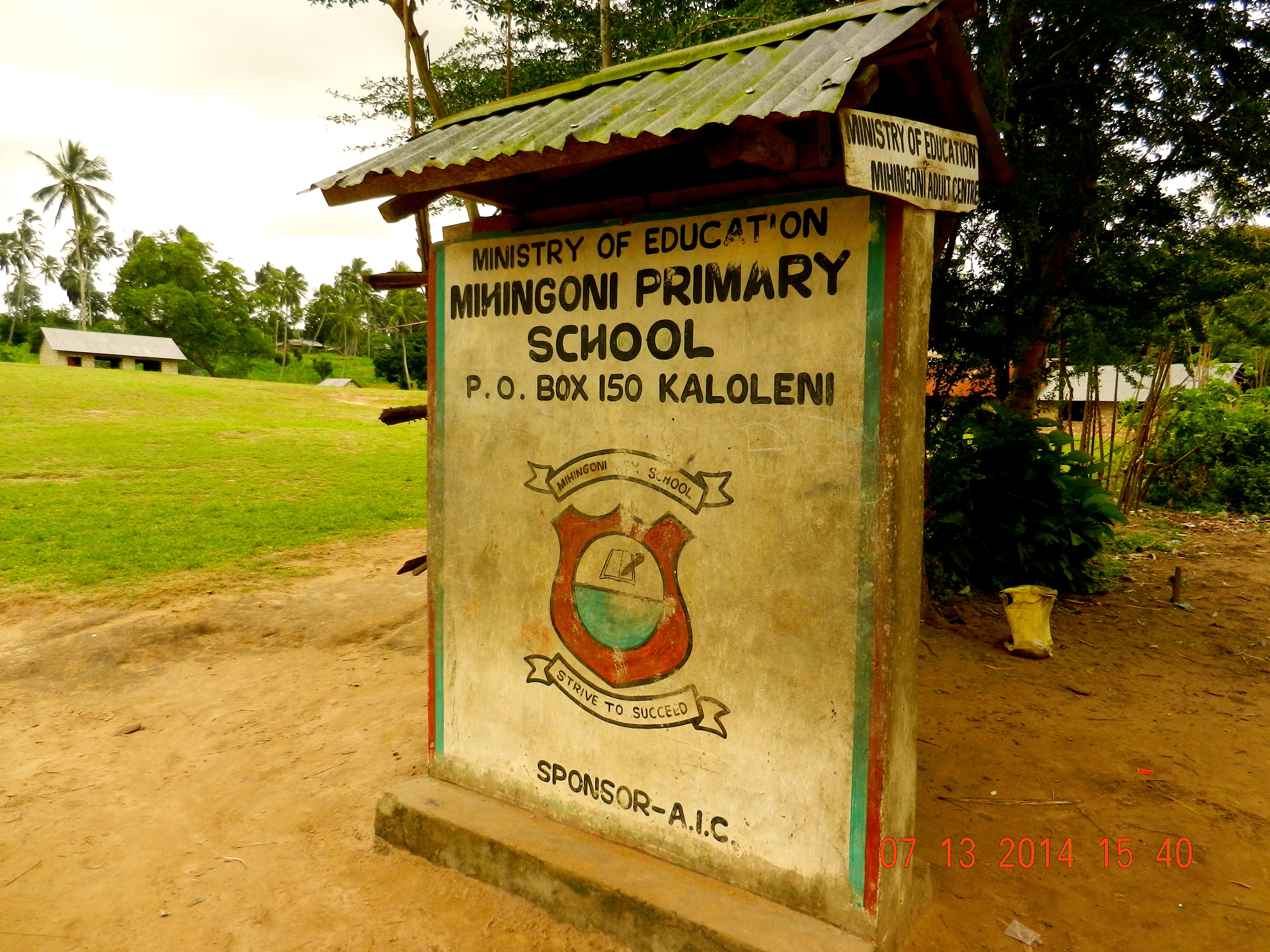
The Issues:
According to UNESCO, 17 million Kenyans lack access to safe drinking water. The coastal province experiences some of the greatest national inequality in this area: countless five-star resorts, yet less than a third of Mombasa’s one million residents are receiving municipal water service provision (Coast Water Services Board, 2012).
Kaloleni (Giriama land) - about 45 minutes away from Mombasa - is a semi-arid agricultural constituency in the coastal province with 64 sub-counties (population approx. 150,000); despite nearly all inhabitants having their own farms, long dry seasons and lack of water infrastructure prevents fully successful harvests. Due to the lack of water infrastructure, the area relies heavily on rainwater and has two rainy seasons – the long rains between April and July, and the short rains between October and November. In Mihingoni, a Kaloleni sub-county and the location of this project, women and girls fetch water from rainwater harvesting points; as water becomes increasingly scarce during the dry seasons the community often has to rely on dirty dam water, and conflict will erupt out of desperation. Children – especially girls – frequently miss school to assist with fetching water year-round, all of which perpetuates both deep poverty in the rural communities and overpopulation/economic insecurity in the big cities.
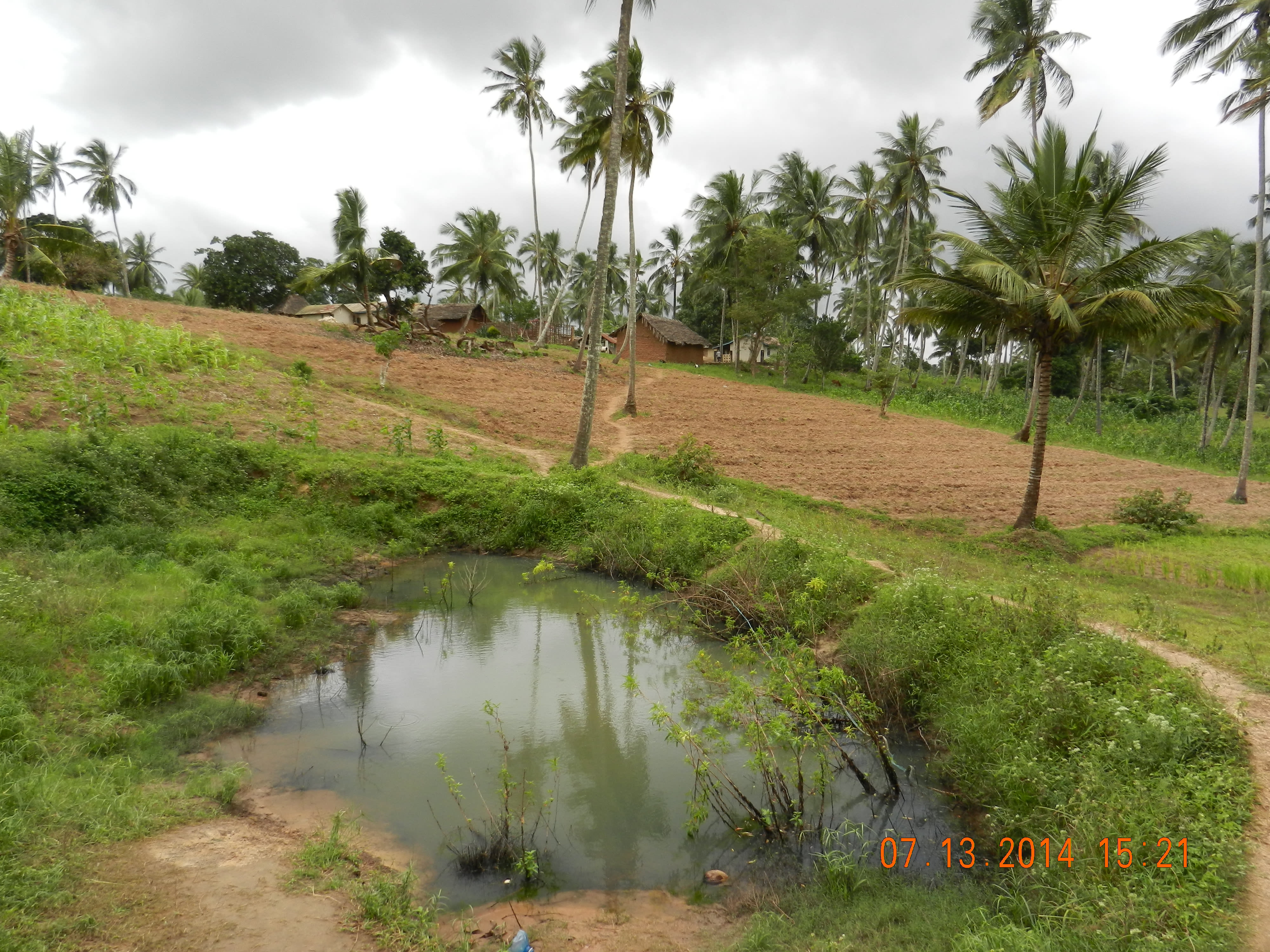
Our Solution: Summer 2014 Implementation:
Between summer 2013 and summer 2014 Ashley applied for grants from/through UC Berkeley, securing roughly $21,000.
-
in collaboration with the Kilifi-Mariakani Water & Sewage Company (KIMAWASCO), Mihingoni Primary school’s administration, and local community, and with input from the Coastal Water Service Board (CWSB), chief’s office, and the Office of the President, the monumental pilot project consisted of:
-
building hand-washing sinks at the boys, girls, and teachers’ latrines
-
establishing two drinking water taps (along with two 10,000-liter water tanks for provisions during water shortages)
-
creating a cement basin for the soapy sink water to be recycled to clean the latrines
-
bringing drip irrigation pipes for the school to establish their own garden
-
constructing a water pipeline across 2.5 kilometers
-
Prior to implementation, we held a town meeting at the school, inviting the students’ parents and other community members to hear how the project originated, the intended implementation approach, and to receive feedback on how to better serve their needs. Roughly 80 community members attended that meeting.
The construction work was completed by a mixture of skilled and unskilled labor entirely from within the community, hiring between 150-200 people.
Additionally, and just as importantly, the team established a water kiosk on the school grounds to sell water to the community at the rate of roughly six cents U.S. for a five-gallon container of water, which will also support the sustainable purchasing of hand-washing soap and latrine antiseptic.
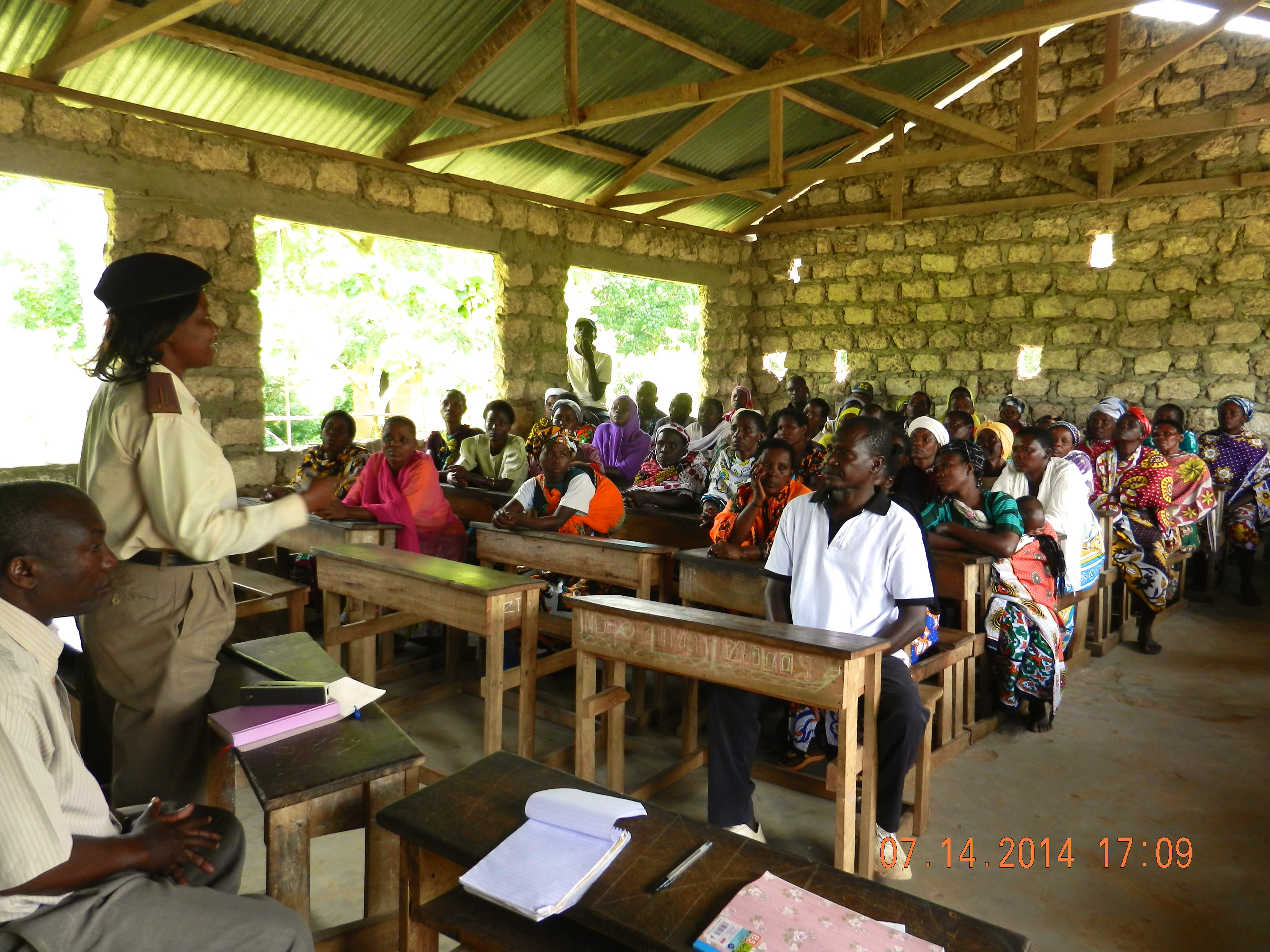
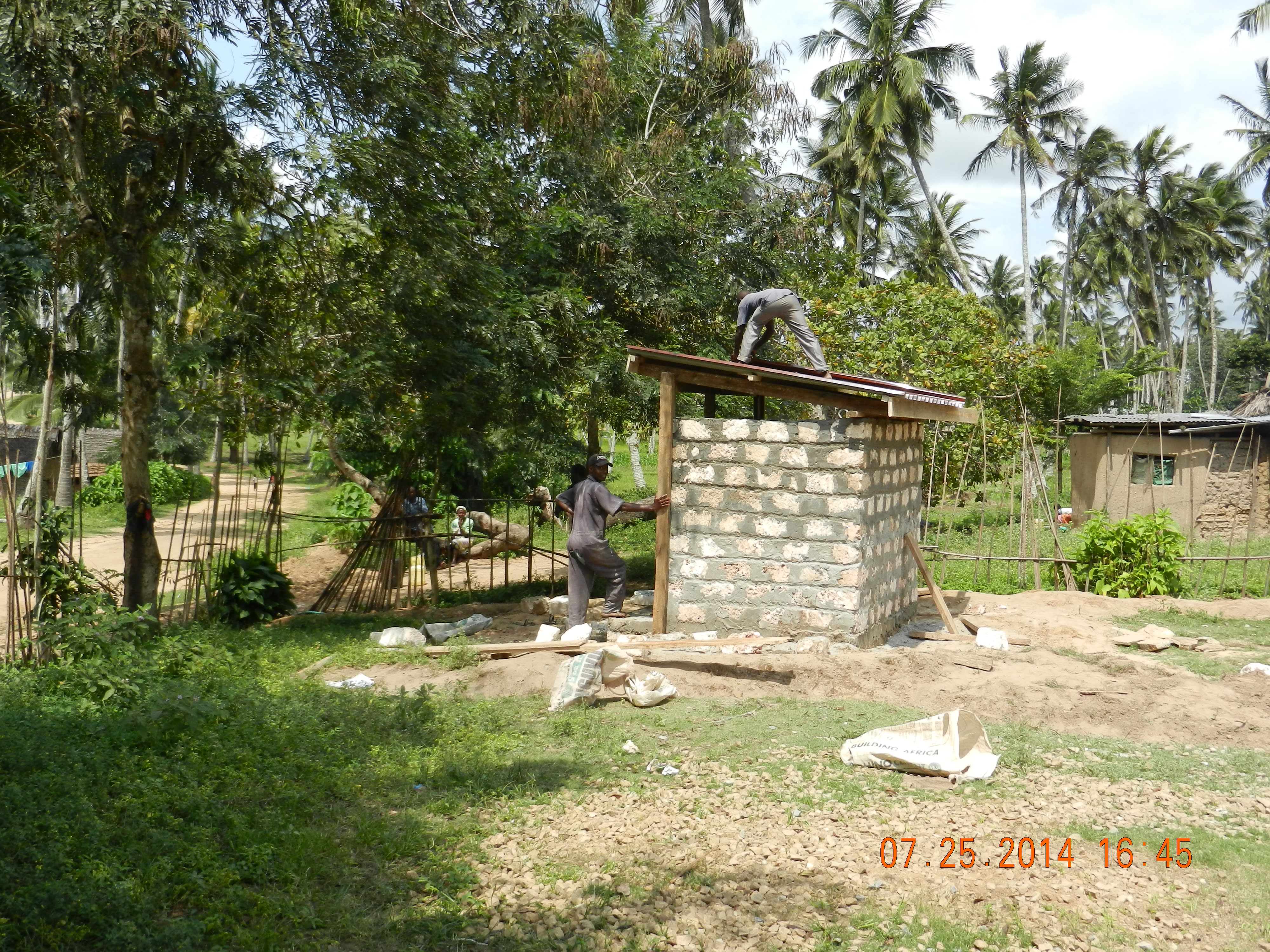
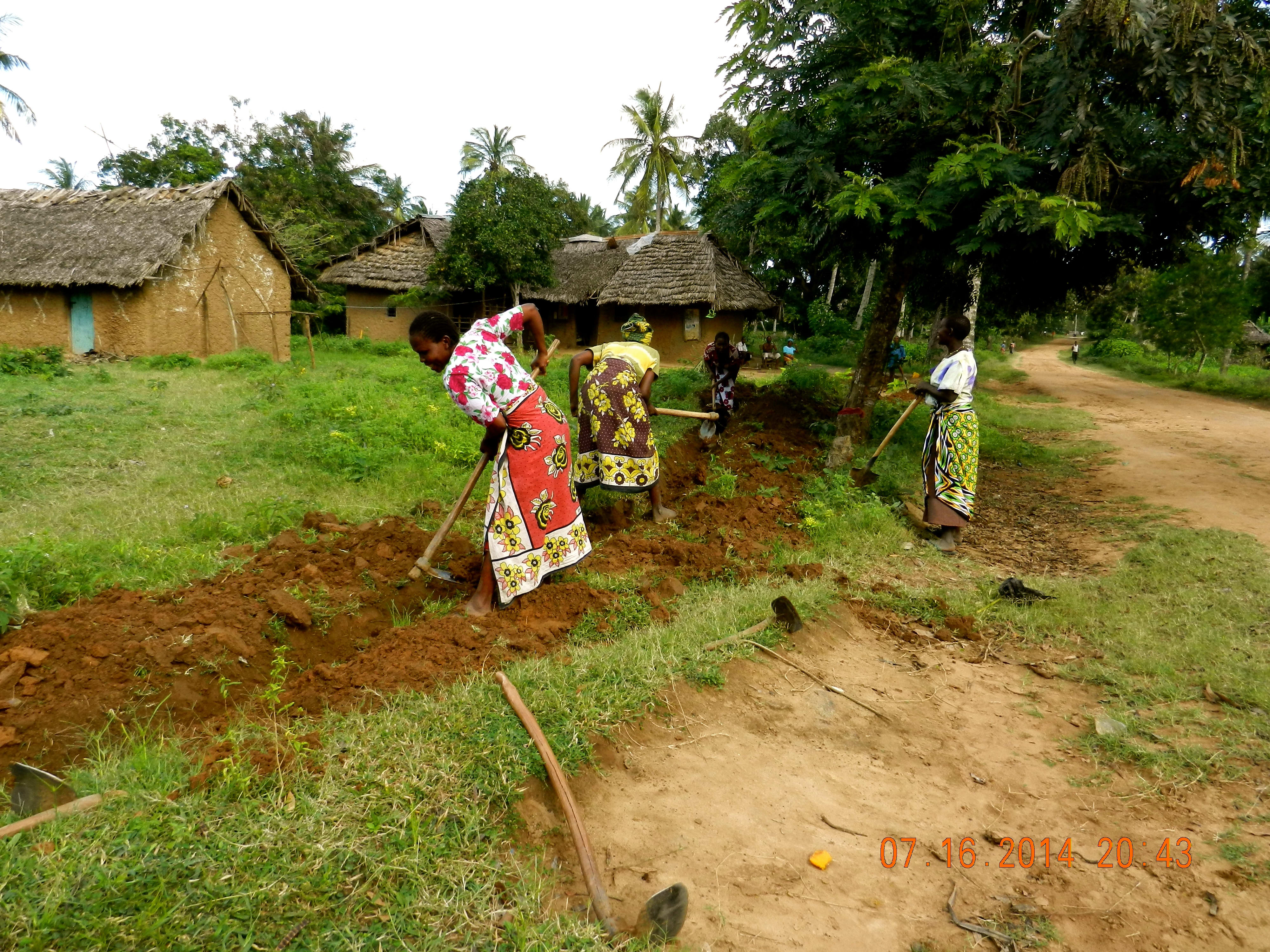
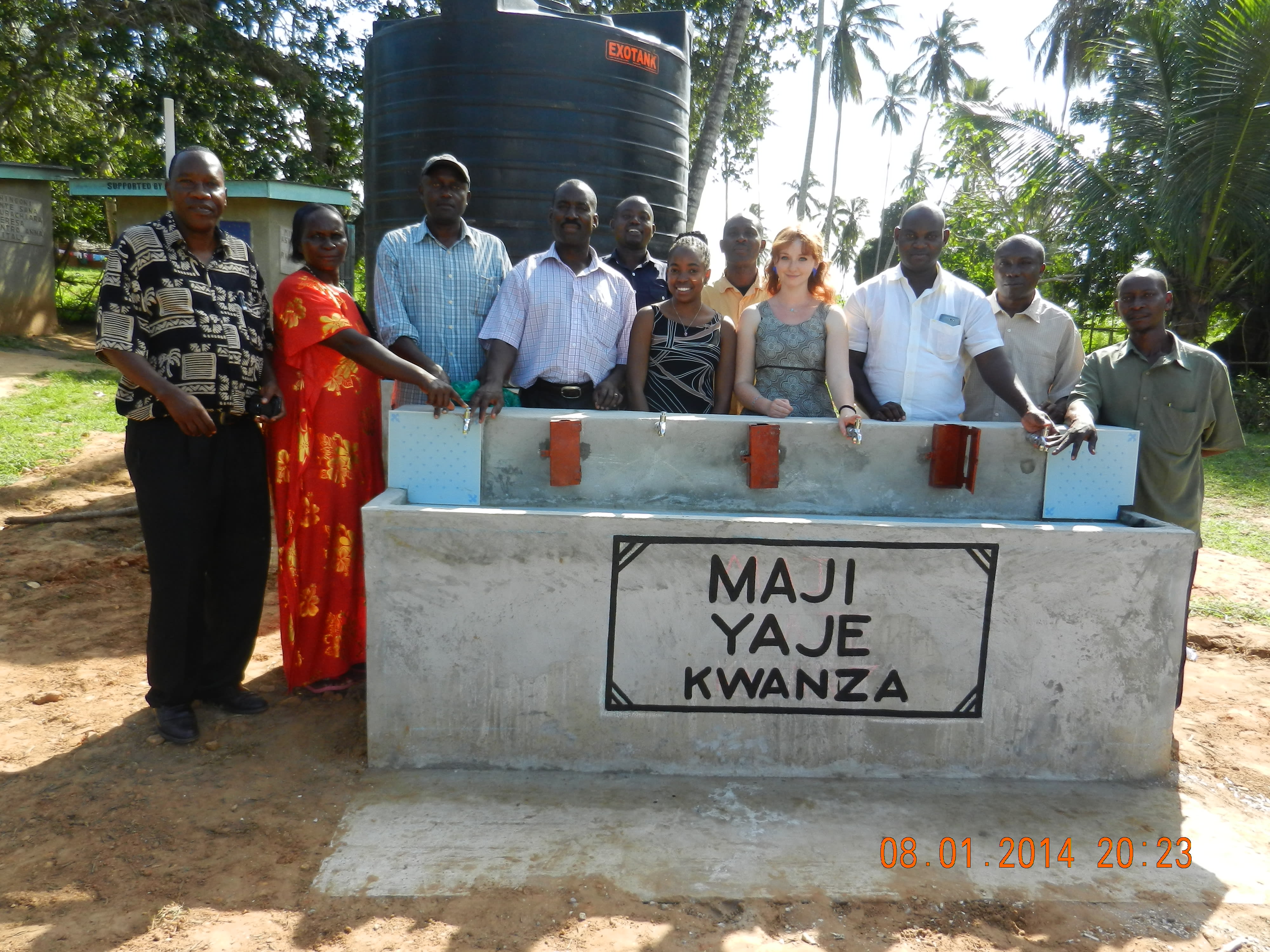
Since implementation:
Since the pilot project’s implementation, a World Bank project in Kaloleni was scheduled to replace the water pumps that have been in use since before independence (1963), and construct large water storage tanks at an elevated point - these two developments were intended to significantly improve water pressure and provision for all of Kaloleni Division, and were the reason why we enacted a water pipeline to the school site.
After many delays, these World Bank projects finally reached completion. However, the water pressure has not been strong enough to supply piped municipal water to the school, and regional droughts have proved that municipal water cannot be relied on. Because of this, we have determined that the only way to ensure consistent provision of water - for both the school and the community - is to enact a borehole at the school site to be connected to all of the infrastructure that has already been established.
Next Steps:
-
Summer 2017 we hired a geologist to complete a hydrogeological survey, resulting in a 36-page report advising on the aquifers in the region and how to take necessary action.
-
We applied (and were approved) for all the necessary permits through the Kenyan government, and received four different borehole-drilling price quotes.
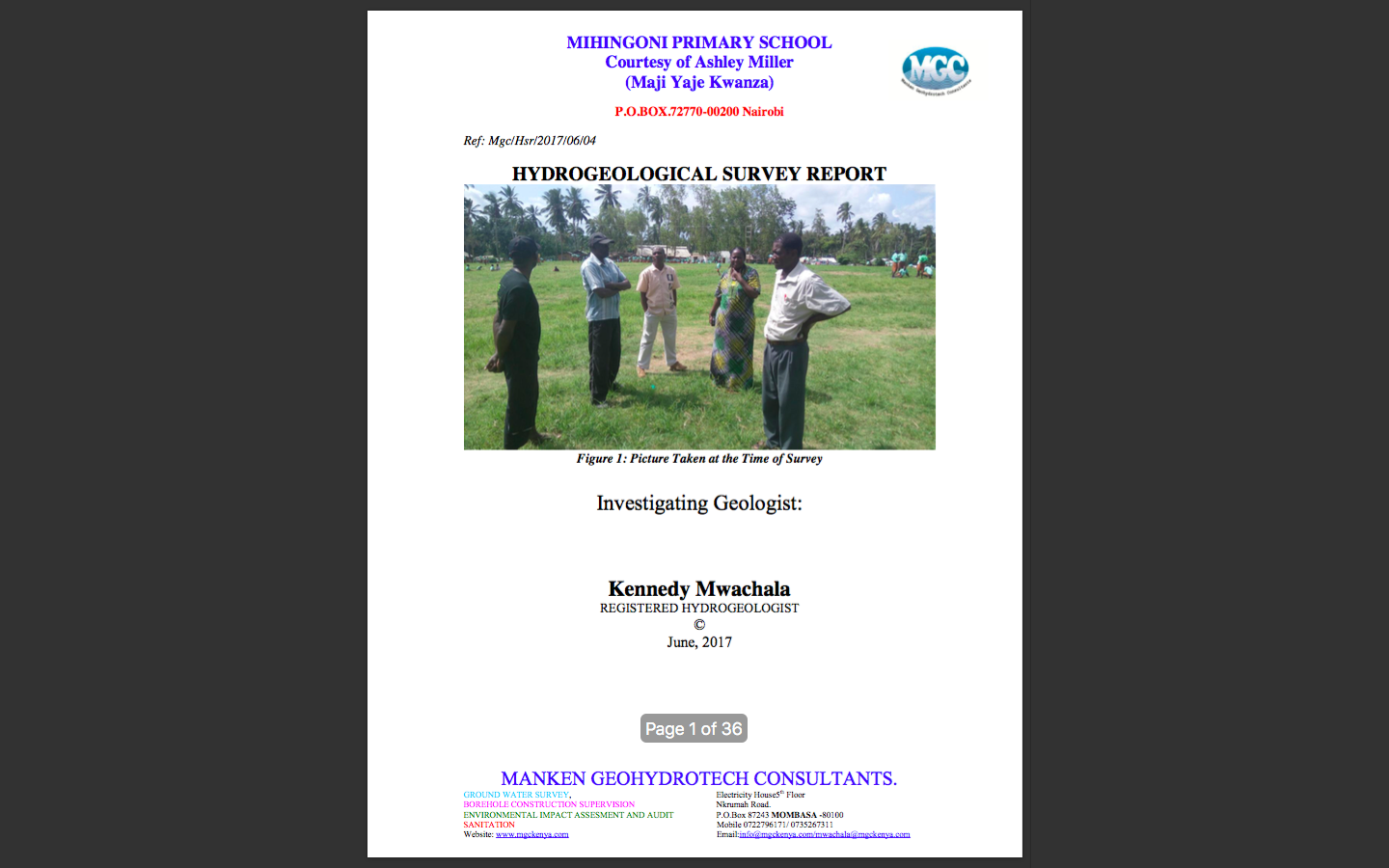
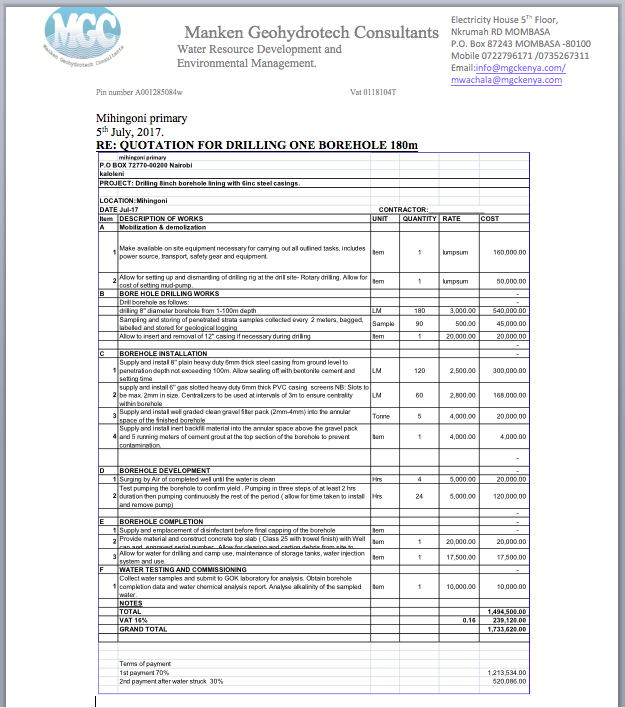
How You Can Help:
Our target goal is $10,000; however, the borehole drilling estimate is roughly $16,000.
-
We also will need to purchase a water pump (preferably a solar pump, to ensure consistency even during electrical instability). The geologist advised us to wait on a pump purchase until the borehole is established and the first pumping test is completed - otherwise there is a good chance the wrong pump will be purchased. Therefore, we will likely need between $16,000 and $18,000 to ensure holistic project completion.
-
Unless we crowdfund vastly above our needed goal, Ashley will be purchasing her own plane ticket to join the team in Kenya for the final implementation (likely in April).
-
Any funds raised above and beyond the costs at Mihingoni Primary will go toward completing the necessary hydrogeological surveys, infrastructural price quotes, and permits for an additional school.
-
The team has a comprehensive list of all sub-counties and primary schools within the region, with information on the number of students and staff names/titles. We have already made in-person visits to three of those schools and spoke with the staff, who were all incredibly eager to work with the project - similar to Mihingoni, there is no formal water source in any of these three communities, so they are in the same extreme need for water infrastructure.
Successfully bringing completion to this pilot project is absolutely vital for not just the Mihingoni community, but for any additional schools we serve in the future. We humbly ask for your support in the final stretch of this project, and in allowing water to truly be the first of many things for Mihingoni.
$25
Social Media Shout-Out
A social media shout-out to recognize you for your contribution toward our goal.
$50
Handwritten TY Card (Ashley)
A handwritten thank you card from Ashley to personally give gratitude to you and your support.
$100
Recording of Ashley Singing
An emailed recording of Ashley singing, along with a personalized thank you message.
$250
Handwritten TY Card (school)
A handwritten thank you card from the Mihingoni Primary school administration, sent to you upon completion of the project.
$500
Recording: Music Made in Kenya
An emailed recording of a song between Ashley and the musicians in the family in Kenya, giving a glimpse into the shared love and connection that’s kept this project going.
$750
Google Hangout Session
A Google hangout session after implementation to share in the celebration of the project’s completion, and answer any questions.
$3,500
1:1 Coffee Meet-up
A 1:1 coffee meet-up if in the area (or a skype call if far away) with Ashley, to discuss the experience, share stories, and overall get an insider’s view into our project.
$7,500
Long-Term Project Plans
A copy of the long-term project plans after bringing resolution to this pilot project, and an in-person meeting or Skype call to discuss/hear any input.

